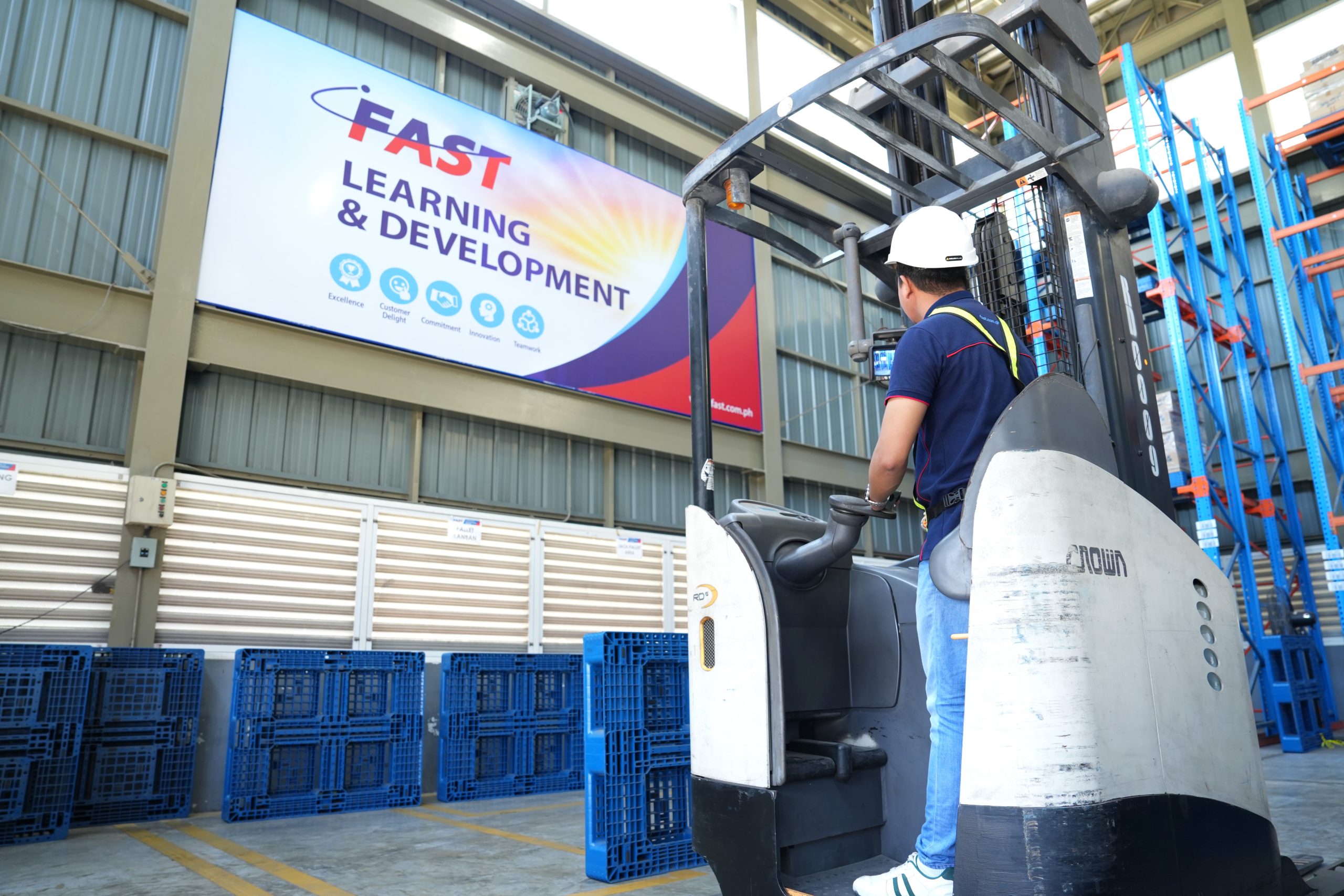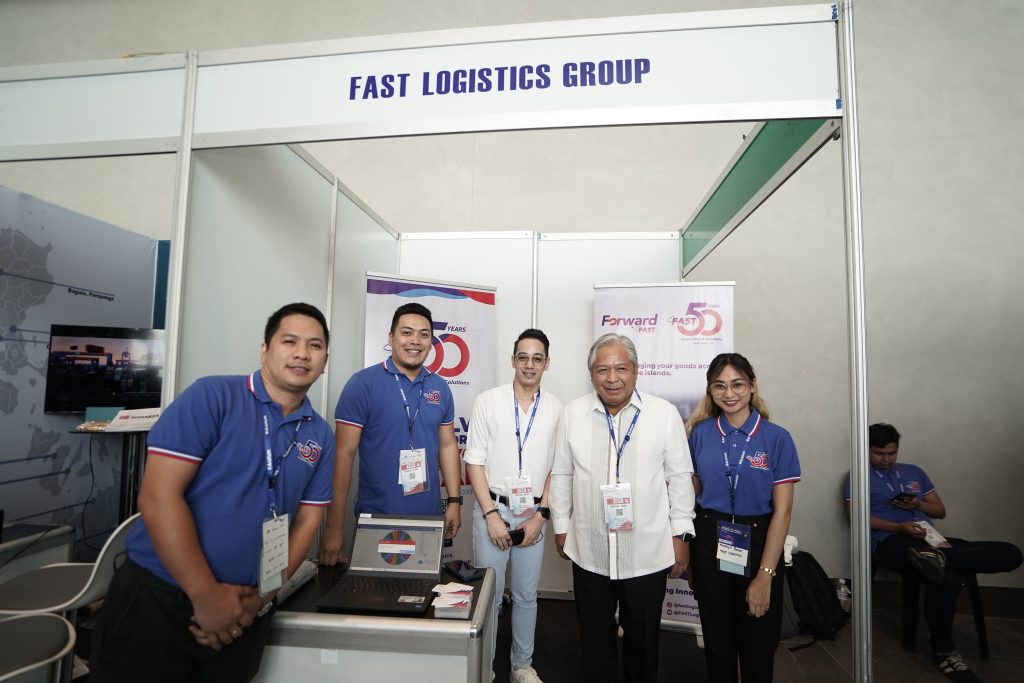
FAST Logistics Group, the leading end-to-end logistics company in the Philippines, explores strategies for developing future supply chain leaders to drive organizational growth and ensure business continuity.
Effective leadership is crucial for any organization to thrive and achieve its goals. Leaders are responsible for guiding a team toward success. After all, they make important decisions and represent the company’s values and culture. Leaders have the power to either propel businesses to success or lead them to failure.
As such, it is vital to invest in actionable insights and strategies for developing future supply chain leaders, ensuring that your organization is well-prepared for the challenges and opportunities that lie ahead. Boosting talent development and well-being with the organization’s future in mind is also paramount due to evolving market demands and the emerging technologies that shape industries.
Companies should therefore allocate resources to empower emerging supply chain leaders to shape the direction and culture of their organizations. Nurturing supply chain leaders is not just about crafting a well-crafted leadership training program; instead, it is fostering continuous learning, adaptability, and real-world experience to truly develop their potential. With the right strategies in place, companies can build a resilient and innovative leadership team that drives long-term success.
Understanding the Role of a Supply Chain Leader
Young professionals who exhibit leadership potential are on track for higher-level management positions. They may be young talents bursting with innovative ideas or experienced employees ready to step into bigger roles or leadership positions. Organizations should prepare them to become supply chain managers who can do the following:
Manage Supply Chain Operations
Supply chain leaders play a vital role in managing the flow of raw materials, finished goods, or services from suppliers to customers. They are responsible for overseeing procurement, logistics, inventory management, warehouse operations, demand forecasting, and distribution, among others. To excel in this role, a supply chain manager must possess various skills, including strategic thinking, problem-solving, effective communication, customer service, and digital proficiency.
Strong analytical abilities are also essential, as supply chain leaders must be able to interpret data and make informed decisions. Additionally, they must be adept at managing relationships with suppliers, customers, and internal stakeholders. In essence, a successful supply chain leader is someone who can balance multiple responsibilities while maintaining a focus on overall business objectives.
Identify and Solve Problems
Effective leadership can significantly impact supply chain performance. When supply chain leaders are proactive and strategic, they can identify potential issues and immediately address them before they become complex problems.
Hence, they must be adept at analyzing data to spot potential supply chain disruptions, whether they are related to logistics, procurement, supplier reliability, market fluctuations, or natural disasters. Future leaders in supply chain operations should also be involved in monitoring supply chain processes and staying updated on developments in the business landscape.

Manage Risks
A well-managed supply chain is crucial for the success of any organization. Supply chain leaders must excel in risk management and demonstrate agility in crafting contingency plans and executing strategies to mitigate potential disruptions.
From procurement and production to distribution and delivery, each stage of the supply chain must be meticulously planned and managed. Leveraging technology and data analytics can further enhance supply chain efficiency, enabling businesses to increase profitability and become more resilient in a fast-paced market.
Foster Innovation and Excellence
Effective leadership cultivates a culture of continuous improvement, encouraging employees to explore new ways to enhance efficiency and effectiveness in supply chain processes. Supply chain leaders should be at the forefront of leveraging technology such as artificial intelligence and machine learning capabilities to optimize business operations.
FAST leverages Warehouse Management System, a highly configurable and user-friendly system for warehouse automation. WMS helps companies reduce errors, minimize downtime, and improve overall productivity at every stage of the warehouse process. The company also uses Transport Management System, a comprehensive set of software solutions to streamline and optimize transportation operations.
By fostering an environment that values commitment, creativity, and excellence, leaders can drive significant improvements in supply chain management and keep up with industry standards. This approach not only enhances performance but also inspires the team to explore cost reduction strategies, improve profitability, and gain competitive advantage.
Inspire and Influence Teams
Supply chain leaders excel at conveying their ideas clearly, inspiring and influencing those around them. They build strong relationships within their teams and across departments, promoting collaboration and continuous improvement of company practices.
Leaders proactively tackle issues with colleagues using conflict resolution strategies and seek feedback to enhance their technical skills and contribute to organizational goals. They also have expertise in team dynamics and effective communication.
Train Future Leaders for Business Continuity
Supply chain leaders play a crucial role in identifying and nurturing young professionals who will occupy key positions in the future. Organizations can ensure continuity in their vision and strategy by developing a pipeline of capable leaders with deep knowledge of company products and processes.
FAST has established the FAST Learning and Development Center, the first of its kind in the logistics industry, that offers education and immersion to all aspiring recruits and current employees. Accredited by the Technical Education and Skills Development Authority, it offers various supply chain and logistics learning programs for all FAST employees and aspiring recruits.
Drive Growth and Boost Organizational Resilience
Key responsibilities of supply chain leaders include driving growth and enhancing organizational resilience. This requires optimizing logistics and operations, as well as implementing innovative strategies to improve efficiency and adaptability.
Trained leaders can make informed decisions, lead their teams effectively, and guide the organization through difficult times, especially supply chain disruptions and market changes. They are also committed to meeting consumer demand, elevating customer satisfaction, leveraging technology, and continuously analyzing market trends.

Top Strategies for Developing Future Supply Chain Leaders
By implementing targeted strategies and nurturing essential skills, companies can equip their workforce to lead with innovation and efficiency. Here are some effective approaches to developing supply chain leaders within an organization.
Spot Potential Leaders Within the Organization
Identifying potential leaders within your organization is the first step in developing future supply chain leaders. Look for individuals who demonstrate strong problem-solving abilities, effective communication skills, and a willingness to take on new challenges. Additionally, consider those who have a deep understanding of the supply chain process and a track record of delivering results.
One effective method for spotting potential leaders is to observe how employees handle difficult situations. Those who remain calm under pressure and can quickly devise solutions are likely to have the leadership qualities you are looking for. Moreover, it is important to seek feedback from their colleagues to gain a comprehensive view of an individual’s capabilities.
Encourage Personal Growth and Reflection
Employees can enhance their confidence and competence by reflecting on their strengths, weaknesses, values, and beliefs. Cultivating self-awareness empowers individuals to continuously refine their skills, adapt to new challenges, and develop greater empathy towards others.
Moreover, they should be encouraged to develop a personal development plan that will serve as their guide in their career objectives and personal growth. This plan should outline specific goals, actionable steps, and a timeline for reaching these milestones, helping them stay focused and motivated throughout their journey.
With its Learning Management System, FAST boosts employees’ technical proficiency across various areas. This online course program is meticulously designed and contains lessons on software applications and development, data analysis, and human resources, which FAST employees need to effectively manage teams and projects. Watch the video below to learn more.
Build Supply Chain Training Activities
Once potential leaders have been identified, it is essential to provide them with the training and mentorship needed to develop their skills further. Training programs should cover a range of topics, including supply chain management, leadership techniques, and industry-specific knowledge.
In addition to formal training, consider implementing mentorship programs where experienced leaders can share their insights and experiences with up-and-coming talent. These will provide an invaluable opportunity for young professionals to ask questions, seek advice, and gain practical insights from experts that cannot be learned in a classroom setting.
Facilitate Mentorship and Coaching
Leadership is as much a personal transformation as it is a professional one. The presence of mentors and coaches can significantly accelerate this transformation. A training program that integrates mentorship and coaching provides the next generation of leaders with a support network through their developmental journeys within the organization.
After all, mentors provide guidance, support, and constructive feedback to help emerging leaders navigate their roles and responsibilities effectively. They also serve as role models for leadership behaviors and can share valuable insights from their experiences.
Promote Innovative Thinking
Innovation is key to staying competitive in the rapidly evolving field of supply chain management. Encourage employees to think outside the box and explore new ideas that can improve efficiency and effectiveness. One way to promote innovative thinking is to create a culture that values experimentation and is tolerant of failure. When employees feel safe to take risks, they are more likely to come up with creative solutions.
Additionally, provide opportunities for cross-functional collaboration, where employees from different departments can share their perspectives and expertise. This exposure to diverse viewpoints can spark new ideas and drive innovation within the organization.
Adapt to Technologies and Industry Trends
Staying current with the latest technologies and industry trends is crucial for maintaining a competitive edge. Employees should remain abreast of developments in the field and consider how they can be applied to supply chain operations. This could involve adopting new software solutions, implementing automation, or exploring the use of artificial intelligence to optimize processes.
By being proactive in adopting new technologies, companies can improve efficiency, reduce costs, and enhance overall supply chain performance. Notably, staying ahead of industry trends ensures that your organization remains relevant and can quickly respond to changes in the market.
FAST constructed a learners’ dormitory next to the FAST Learning and Development Center in Cabuyao, Laguna. This facility offers a comfortable and conducive living space for employees attending training programs, particularly those from distant provinces. It also provides accommodation for FAST employees working at the Laguna warehouse who live in other provinces. By eliminating the need for daily commutes, this dormitory reduces transportation expenses and enhances work-life balance of FAST employees.
Recommend Courses, Certifications, and Workshops
Aside from company-sponsored training programs, employees will benefit from other courses, certifications, and workshops outside the organization that can enhance their supply chain skills and management capabilities.
They may also attend workshops and conferences which provide opportunities for hands-on learning and networking with other professionals in the field. By participating in these activities, future leaders can gain a deeper understanding of supply chain management and build connections beneficial for company growth.
Foster a Culture of Continuous Learning and Development
In the dynamic field of supply chain management, continuous learning is essential for staying ahead of industry trends and technological advancements. Ongoing education helps leaders to refine their skills, stay updated on best practices, and adapt to changes in the market. Companies should encourage their employees to pursue further education and provide opportunities for professional development.
FAST has been recognized by the Philippine Daily Inquirer and Statista as one of the Philippines’ Best Employers for two consecutive years, from 2023 to 2024, demonstrating the company’s commitment to promoting employee well-being and creating a positive company culture.
Investing in continuous learning not only benefits individual employees but also has a positive impact on the organization as a whole. Employees who are well-versed in the latest developments and industry standards are better equipped to make informed decisions and drive innovation within the company.
Cultivating Excellence in Supply Chain Management
Developing future supply chain leaders is essential for maintaining a competitive edge in today’s business environment. By understanding the role of a supply chain leader, encouraging personal growth and reflection, implementing effective training and mentorship programs, promoting innovation, and fostering continuous learning, companies can nurture skilled leaders with empathy who can influence others and drive a culture that supports the company’s mission and values.
As you strive to develop the next generation of supply chain leaders, remember that ongoing education and skill enhancement are key. Encourage your employees to stay updated on industry trends, provide opportunities for professional development, and cultivate a culture of excellence within your organization. By investing in your team’s growth, you can ensure that your organization remains agile and efficient to meet consumer demand and navigate industry challenges and opportunities.
FAST Logistics Group is the Philippines’ leading end-to-end logistics company with over 50 years of industry leadership. Connect with our Solutions Experts or visit http://linktr.ee/fastlogisticsph to learn more about our solutions
Categories
-

FAST Ahead
Includes case studies and testimonials of our partners as well as other featurettes from industry experts
-

FAST Hacks
We simplify logistics terms and provide practical tips and solutions for the DIY in you
-

FAST Highlights
Know more about our history, various brands, achievements, and news updates
-

FAST Moments
Get to know the people of FAST, our employee programs, as well as our various ways of giving back to the community
-

FAST Solutions
Learn more about the various logistics solutions that we cater to and offer our clients, as well as tech innovations, and service facilities



